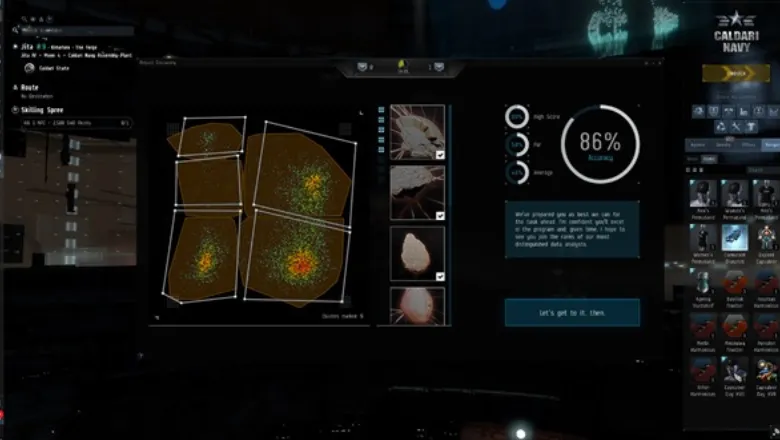The analytical tools that are being co-developed by the EVE community will be of tremendous value to immunologists not just to understand COVID-19 but all diseases that involve the immune system. Ultimately, this has the potential to bring immune understanding into routine clinical use.
Adam Laing, Postdoctoral Research Associate at the School of Immunology & Microbial Sciences
24 May 2021
Online gamers take on COVID-19 analysis
Scientists have been receiving help with vital coronavirus research from an unlikely team of data analysts - players of the popular online computer game, EVE Online.

The gaming community has been helping to analyse data from patients with COVID-19 as part of the COVID-IP study, a collaboration between King’s, the Francis Crick Institute and Guy's and St Thomas' NHS Foundation Trust.
Researchers have been examining the composition of immune cells in the blood of patients with COVID-19, to better understand how SARS-CoV-2 causes disease and why some people end up needing intensive hospital care. Their ambition is to characterise ‘immune signatures’, identifiable in blood tests, that can be used to guide treatment decisions and give every patient the best chance of recovery.
The study involves detailed analysis of patient blood samples using a technique called flow cytometry which, using an array of lasers, can detect single cells or particles. This allows scientists to characterise millions of cells extremely quickly and determine which immune cells are present, in which proportions, and in which state.
With many coronavirus research projects happening globally, huge amounts of flow cytometry data are being generated, so researchers in Canada, the US and Italy challenged game designers to create an in-game citizen science project that makes analysing large data sets appealing to thousands of online players.
Through Project Discovery, online players are tasked with spotting patterns in groups of cells and the data are fed back into studies, including COVID-IP, examining the effect of coronavirus on the immune system
Armed with a picture of immune cell activity during infection with SARS-CoV-2, the COVID-IP team has been able to identify a triad of molecules at unusual levels, which is good predictor of disease severity. Their findings have also informed clinical trials into drugs that promote T cell function.
Project Discovery has had over 120 million data submissions from thousands of players across the world, amounting to decades of data analysis work. Each submission is also helping to teach a machine learning algorithm so that the process can be automated in future.
“It’s incredible to be able to support and contribute to a pressing problem like COVID-19,” says Bergur Finnbogason, EVE Online’s Creative Director at CCP Games.
“By connecting the amazing EVE community and our researcher colleagues, we’ve managed to unlock new tools, understanding and perspective on the issues we are facing now and will face in the future. Project Discovery is a testament to the magic that happens when you join science, creativity and joy-of-play to solve a complex problem.”
“The level of collaboration in coronavirus research has been astounding, not just between researchers, but also members of the public wanting to get involved and play their part. I hope that projects such as this inspire more people to consider a career in research and to take ownership of understanding scientific experimentation.”
Professor Adrian Hayday, COVID-IP project lead from the School of Immunology & Microbial Sciences

